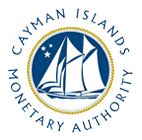List of Brokers with CIMA Regulation
The Cayman Islands Monetary Authority (CIMA) began operations on January 1, 1997, to regulate and oversee the Cayman Islands' financial services industry. CIMA is also responsible for enhancing Cayman's ability to maintain a well-regulated financial services regime and monetary stability. CIMA is given the functions, duties, powers, and obligations to ensure the accountability and transparency of the Cayman Islands while protecting and enhancing the integrity of the financial services industry in the area.

| Established | : | 1997 |
| Country | : | Cayman Islands |
| Website | : | https://www.cima.ky |
| Total Brokers | : | 10 |
Scroll for more details
FAQ
What does CIMA regulated mean?
Being regulated by CIMA (the Cayman Islands Monetary Authority) means operating under the standards of a Cayman Islands financial regulator. Established in 1997, the institution bears the responsibilities derived from the Cayman Islands Monetary Authority Law. Its regulatory framework helps ensuring the ethical code of conduct from financial companies in the country. Their subjects include banks (onshore and offshore), portfolio managers, hedge funds, fund management entities, and credit unions.
CIMA regulated forex brokers are generally operating under easier policies compared to other brokers regulated in top financial watchdogs. The Cayman Islands Monetary Authority is known for a liberal framework to give more flexibility to financial companies set up in the country. Nonetheless, CIMA is obliged to the international community for creating specific rules and regulations to at least prevent money laundering and financial crimes. Other requirements set up by CIMA are:
- Annual audits on company accounts.
- Submission of annual accounts and certificate of compliance.
- Notification to CIMA if there are changes made by the company.
- Independent audit on the internal controls of licence holders.
- Provision of current insurance details.
- Submission of monthly statements by licensed dealers/brokers.
- Adjustion of balance sheet figures on an annual basis.
What is the main purpose of CIMA?
What is the main purpose of CIMA?
- To regulate and supervise all financial services in the Cayman Islands.
- To ensure that regulated businesses are compliant with money laundering regulations. -To provide regulated entities with a guideline containing policies and procedures, as well as statements of principles.
- To act as an advisor for the Cayman Islands government in relation with monetary and regulatory matters.
- To manage currency reserves, issue, and redeem the Cayman Islands currency.
- To contribute in helping overseas regulatory agencies to promote the supervision of financial markets.
To ensure the safe operation of the Cayman Islands economy and protect investors from financial malpractices, CIMA has the authority to implement several guidelines in place. Involvement in any financial crimes by a member firm won't be taken lightly even though CIMA's preference to keep their policies flexible may deter them from applying strict rules to a suspected instituion. Nevertheless, CIMA ensures constant surveillance and regularly promotes sound financial system to improve confidence and trust among investors.
If you are interested to open an account in one of the brokers in the list above, make sure to try the forex demo account before proceeding to register in the live account.
Additional FAQ
How to check a broker's regulation?
Here are the steps on how to check if a forex broker is regulated:
- Check the broker's website.
- Visit the regulatory agency's website.
- Contact the regulatory agency.
Continue Reading at How to Avoid Forex Broker Scams
What are the regulations for offline forex trading in Nigeria?
The foreign exchange transaction activity in the offline market is supported by law. Some of these include the Central Bank of Nigeria Act of 1958, the Foreign Exchange (Monitoring and Miscellaneous Provisions) Act of 1995, the Exchange Control Act of 1962, the Banks and Other Financial Institutions Act of 2007, and the Investments and Securities Act of 2007.
Continue Reading at Is It Safe to Trade Forex in Nigeria?
What are the regulations for online forex trading in Nigeria?
When it comes to online trading regulation, the ambiguity of laws in Nigeria contrasts with other African countries that have already implemented regulations. For example, South Africa's Financial Sector Conduct Authority (FSCA) and Kenya's Capital Markets Authority (CMA) have already regulated online forex brokers in their countries. Furthermore, South Africa has even established rules for forex trading taxation.
Continue Reading at Is It Safe to Trade Forex in Nigeria?
What are the areas of PRA's regulation?
According to the PRA rulebook, there are 3 areas of the PRA regulations. Firms must comply with the regulations depending on which classification they fall into.
- Banking and Investment Rules: for CRR firms (banks, building societies, or investment firms subject to the EU Capital Requirements Regulation) and non-CRR firms (credit unions, building societies, or PRA-designated investment firms not subject to the EU CRR).
- Insurance Rules: for SII firms (insurance firms subject to the Solvency II Directive) and non-SII firms.
- Other rules: for non-authorized persons (persons or firms not authorized by the PRA).
Continue Reading at What are the Top UK Financial Regulators?
Broker Categories
Minimun Deposit
Payment
Country
Established
Instruments Traded
Features
Trading Platform











